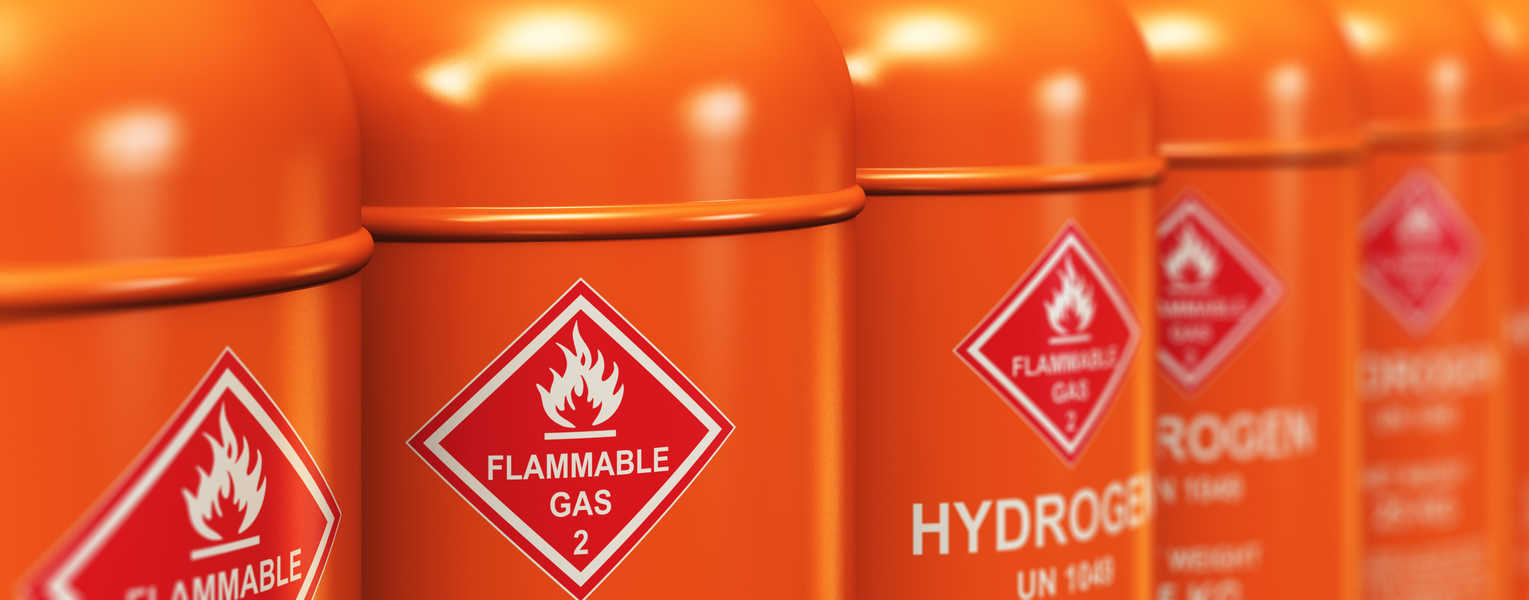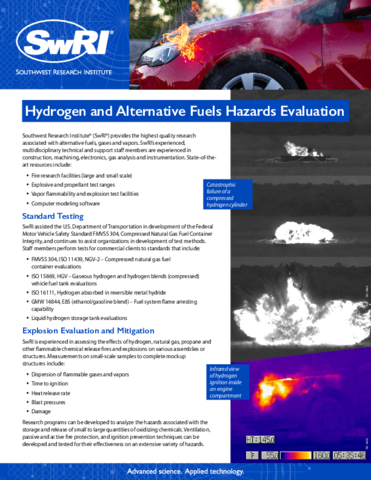SwRI assesses government and industry clients in developing new standards for evaluating hazards associated with alternative fuels. Our team can analyze ventilation fire protection and ignition prevention techniques associated with storage of oxidizing chemicals. We can measure distribution and dispersion of flammable gases and vapors, time to ignition, heat-release rate, blast pressures, and damage ranging from small-scale samples to entire mock-up structures, including small- to large-scale fires, blasts, and explosions. There are hazards associated with the storage and release of small to large quantities of oxidizing chemicals, and our team can analyze the ventilation, passive and active fire protection, and ignition prevention techniques for their effectiveness. Our on-site explosion containment facility allows cost-effective performance of moderate-level explosion research programs, and a remote test site allows the safe simulation of severe explosive events.
For questions about this testing, please contact Alexandra Schluneker at +1 210 522 6423.
Hazardous Material Storage and Transportation
SwRI performs testing in accordance with the United Nations’ Recommendations on the Transport of Dangerous Goods—Manual of Tests and Criteria. Testing includes:
- Classification for explosives (Class 1)
- Flammable liquids (Class 3)
- Flammable/self-heating solids (Class 4)
- Oxidizing substances (Class 5)
- Ammonium nitrate fertilizers (Class 9)
Additional testing includes evaluations of Hydrogen Energy Research , including:
- Self-accelerating decomposition temperatures
- Deflagration/detonation propagation
- Deflagration/detonation inside packaging
- Heating and explosions under confinement
- Explosive power


